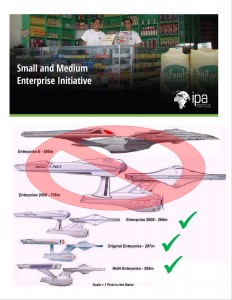Guest post by Jeff Mosenkis at Innovations for Poverty Action
- A sanitation RCT done with our folks in Bangladesh and published in Science found a latrine education/promotion program used in 60 countries had no effect on latrine use by itself, but that it did improve usage and had positive externalities when the program was combined with subsidies to build latrines (so it may be that it takes social & economic channels together). Paper here (gated) summary here.
- Post Ebola, the US will support a new African Center for Disease Control, based in Addis Ababa, with an additional five regional disease surveillance and epidemiology sites. Much of its work will be linking existing public health agencies together.
- Meanwhile, the WHO released a self-critical statement about what they did poorly in the Ebola crisis, but walked it back just an hour later, releasing a less critical version. Sarah Boseley at the Guardian combined them to show the edits. (h/t Duncan Green)
- A non-profit investigative journalism project from Germany looks at the Italian Mafia’s involvement in African economies. The series of articles is a really impressive effort that took:
Ten investigative reporters from six different countries, one data-journalist and a data-scientist, three editors, one cross-examiner and a bunch of lawyers joined the effort in producing in-depth research into the Mafia’s involvement in 13 countries.
- In Foreign Affairs, Catherine Thomas and Johannes Haushofer talk about the relationship between mental health and poverty (Rwanda has six psychiatrists for a population of 12 million, Ghana has 12 psychiatrists for 26 million people.) A fix may lie in training lay workers in locally appropriate mental health treatments. (And a profile of the first psychiatrist in Bhutan is here, via Ted Barnett).
- Peter Singer is offering the internet the chance to vote on how to distribute royalties from his new book The Most Good You Can Do to different effective charities in an online “giving game.” (Shameless plug – IPA is an included “meta charity.”)
- But a better fundraising strategy might be exploiting male sexual competitiveness. In Current Biology, researchers looked at donations to fundraising webpages of London Marathon runners:
The researchers found that males give significantly more money “when they are donating to an attractive female fundraiser, and responding to a large donation made by another male donor.”
The researchers didn’t find the effect when the genders were reversed.
- The Inter-American Development Bank’s Evaluation Hub has a number of resources on conducting evaluations, calculating effectiveness and cost-benefit analysis (h/t David Evans).
- The Overseas Development Institute launched a Data Festival this week in Cartagena with the goal of getting better data for governments in the developing world so that they can make better decisions. Report here.
And finally, some clarity for the SME community on what counts as a Small to Medium Enterprise:


6 Responses
RT @cblatts: IPA’s weekly links http://t.co/m7x4aTFAAx
IPA’s weekly links: Guest post by Jeff Mosenkis at Innovations for Poverty Action A sanitation RCT done with o… http://t.co/q9qTgeioqK
The mafia in Africa, how the WHO took more then less responsibility for Ebola handling & more from @poverty_action http://t.co/4J7X9RhC2V
See the mothership here: http://www.poverty-action.org/sites/default/files/small_and_medium_enterprises_brief.pdf
Weekly development links: http://t.co/O251yUH2ip via @poverty_action on the @cblatts blog
IPA’s weekly links http://t.co/m7x4aTFAAx